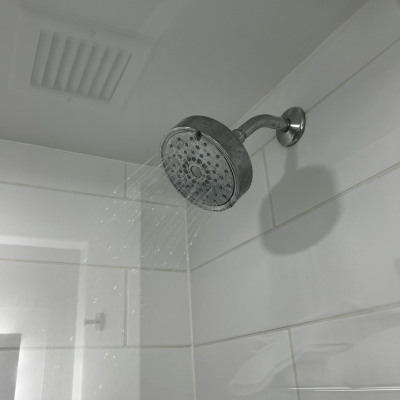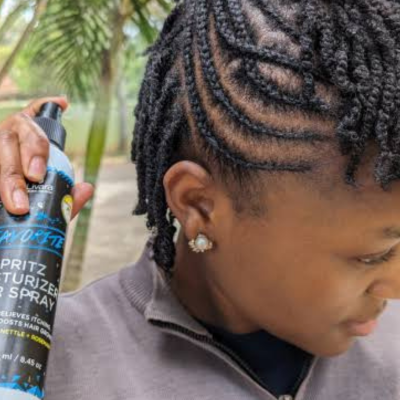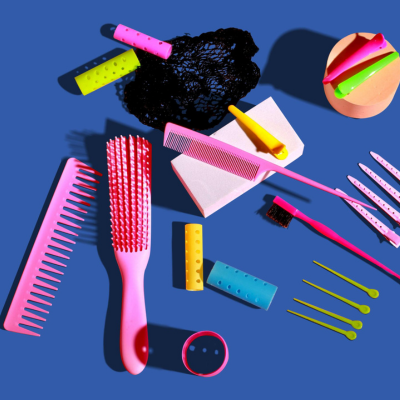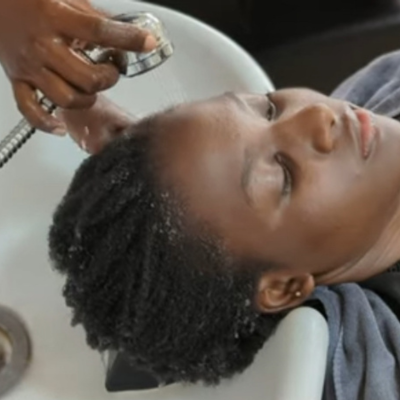- Support 24/7
- +1 (480) 468-4543
- livara@mylivara.com
Everything You Need To Know About How Hard Water Affects Natural Hair + Tips To Help

The Ultimate Guide to Promoting 4C Hair Growth
June 16, 2024
A Beginner’s Guide to the Curly Girl Method (CGM)
June 19, 2024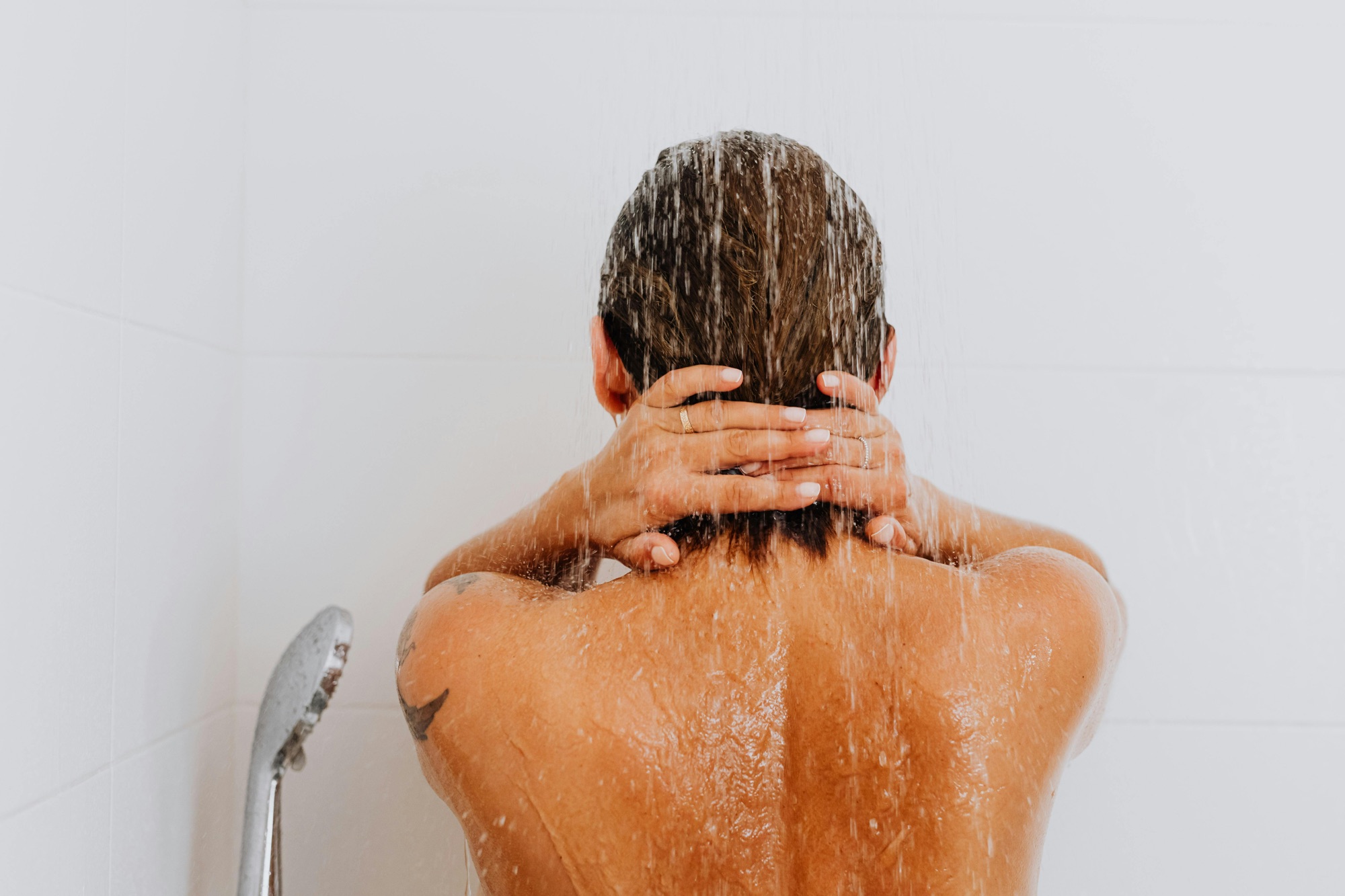
Ever wonder why your natural hair feels dry, hard, and just plain dull, even with the best hair care routine? The culprit might be hiding in your showerhead – hard water. But don’t get frustrated by this and give up! By understanding how hard water affects your hair and taking some simple steps, you can transform your hair journey from frustration to fabulous. So read on as we show you how hard water affects natural hair and tips to help if it has affected yours.
What is Hard Water and How Can You Tell?
Hard water is water with a high mineral content, primarily calcium and magnesium. These minerals are picked up as water travels through rocks and soil. While beneficial for some purposes, they can wreak havoc on natural hair.
Identifying hard water can be tricky because it doesn’t have a distinct color or odor. Here are some clues:
- Soap Scum Buildup: Difficulty lathering soap and persistent soap scum buildup on surfaces can indicate hard water.
- Mineral Deposits: White buildup around faucets, showerheads, and kettles can be a sign of mineral deposits from hard water.
- Water Spots: Dishes and glassware with water spots after drying can be another clue.
A Quick Look at Other Water Types:
While hard water is the main concern for natural hair, here’s a brief overview of other water types:
- Soft Water: Low in minerals, beneficial for hair as it doesn’t cause buildup.
- Distilled Water: Pure water with no minerals, lacking essential minerals for hair health.
- Mineral Water & Spring Water: Contain naturally occurring minerals, some beneficial, but high calcium/magnesium can mimic hard water effects.
- Rainwater: Unpredictable due to potential pollutants, not recommended for hair rinsing.
How Does Hard Water Affect Your Hair?
The high mineral content in hard water disrupts the delicate balance of your hair’s natural defenses:
- Mineral Buildup: Calcium and magnesium ions can latch onto the hair cuticle, forming a film. This disrupts the cuticle’s smooth surface and creates a rough, dull texture.
- Stripped of Natural Oils: Hard water can interact with the scalp’s sebum production, a waxy oil that coats the hair for moisture and shine. Hard water can strip away this sebum, leaving your hair dry and dehydrated.
- Moisture Barrier Breach: The mineral film on the hair cuticle can hinder its ability to retain moisture, especially damaging for natural hair which already tends towards dryness.
Signs of Hard Water Damage on Your Hair:
The effects of hard water on your hair are often quite noticeable:
- Dryness and Brittleness: The most common sign is hair that feels dry, straw-like, and prone to breakage.
- Dullness and Lack of Shine: Hard water can steal your hair’s natural luster, leaving it looking lackluster and lifeless.
- Frizz and Difficulty Detangling: The disrupted cuticle can make hair frizzy and prone to tangles, turning washday into a frustrating battle.
- Scalp Irritation: In some cases, hard water can irritate the scalp, leading to itching and discomfort.
Fighting Back: Solutions for Healthy Hair
Now that you understand the enemy, it’s time to take action and protect your beautiful mane! Here are some solutions to combat hard water’s effects:
- Test Your Water: Use simple home test kits or contact your local water authority to determine your water hardness level.
- Showerhead Filtration: Invest in a showerhead filter specifically designed to remove minerals. This is a one-time investment with long-lasting benefits for your hair.
- Hair Care Arsenal: Develop a hair care routine that caters to the specific challenges of hard water. This might include:
- Clarifying Treatments: Use a clarifying shampoo like the nourishing and effective Tsavorite Clarifying Treatment Hair Shampoo periodically to remove mineral buildup. But be gentle, as overuse can be stripping.
- Apple Cider Vinegar Rinse: A diluted apple cider vinegar rinse can help flatten the cuticle and restore shine.
- Deep Conditioning: Regular deep conditioning treatments with rich, natural ingredients are essential for replenishing moisture.
- Leave-in Conditioners and Hair Oils: These products create a protective barrier on the hair, minimizing the impact of hard water.
- Protective Styles: Consider protective styles like braids or twists to minimize hair manipulation and exposure to hard water.
- Chelating Shampoos: For severe cases, chelating shampoos can be used occasionally to remove deep mineral deposits. However, consult a hairstylist before using them as they can be drying.
By understanding hard water and taking these steps, you can transform your hair care routine and keep your natural hair healthy, hydrated, and full of life. Remember, a little knowledge goes a long way.
